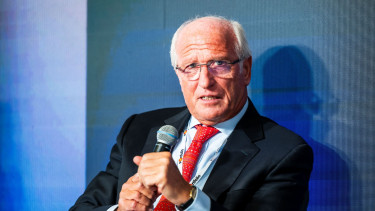Drastic German plan against Hungary,Poland leaked
The FT cited a German position paper dated 25 January and circulated to governments at the end of last month as calling for EU regional aid to be “linked to compliance with fundamental rule-of-law principles", saying “EU values are the foundation for cohesion of the Union". The stance, however, was still preliminary, given that the content of the paper still depended on the outcome of coalition talks and the composition of the new German government. There have been an increasing number of signs that Berlin is adamant on such a tough position in this respect.
The plan would be a big departure from traditional uses of the structural funds, which have had a heavy focus on infrastructure projects as well as education and training for EU nationals. Berlin pushed the plan at a preparatory meeting of senior national officials this week, according to two people present at the talks in Brussels.
The 177-page draft coalition deal between Chancellor Angela Merkel’s CDU/CSU and the centre-left SPD also includes that
- every EU region should receive cohesion funds, but compliance with rule-of-law principals and core EU values is paramount, and
- sharing the burdens of the refugee crisis (solidarity) is mandatory for all member states.
These suggestions lacked detailed explanations therefore the messages of the FT article are hugely important. Additionally, the paper had two sources that both attended the discussions in Brussels this week where those in charge were preparing for the informal EU summit due on Friday. Heads of states and government will meet in Brussels to discuss the next long-term EU budget.
According to one person present at the talks said the German idea was
not what I understand by cohesion funds.
This is rather obvious, given that under the proposal seen by the FT:the EU’s “structural and investment" funds would support governments that “have assumed responsibility for taking in and integrating beneficiaries of international protection of migrants with a right to stay".
The new approach would reduce the focus on a country’s wealth and potentially reallocate some funds to richer nations in northern and western Europe that have taken in migrants — most notably Germany itself, which took in more than one million during the 2015 crisis, the FT said. According to EU diplomats, the reallocated funds could be spent on housebuilding in areas where an influx of migrants had led to shortages of accommodation, as well as language classes and skills training for migrants.
The FT reminded that Merkel has publicly mooted the idea of linking more regional funds to the way the bloc deals with migrants, saying in a podcast on February 17 that “solidarity cannot be a one-way street" and when it comes to challenges such as migration “everyone has to participate in the division of tasks."Under the mandatory quota system, Hungary should take in 1,294 asylum seekers, but officially it has accepted not a single one of them, even when it lost in a case on the European Court of Justice. At the start of this year, a few brows were raised by press reports that Hungary took ensured international protection to 1,291 refugees, i.e. the country gave them refugee or protected status or classified them as beneficiaries of international protection. This is a different category, though, as under the quota system Hungary should have relocated 1,294 registered asylum seekers in Hungary, while those under international protection may enter the country but 90% of them moved on last year, according to Hungarian authorities. Hence, their presence entails no further material or integration costs to the country.
As of 16 February 2018, Hungary, Poland and Denmark have not taken in a single refugee in the Emergency Relocation Mechanism from Italy or Greece, while about 34,000 relocations were made in the EEA.
Pro-government paper Magyar Idők reported on Tuesday about a leaked plan to change the Dublin Regulation, under which Hungary would not need to take in 1,294 but 10,000 refugees. If such a modification of the Dublin Regulation is adopted (e.g. at the June EU summit, with a qualified majority, circumventing Hungary’s objection), meeting the next quota would become even more difficult for Hungary. And that would further increase risks of losing access to EU cohesion funds after 2020.
Last week, the European Commission discussed options for the future EU budget, but the paper only lamented about linking the rule-of-low criterion to EU budget, and didn't mention the intention to link the mandatory relocation system and the EU budget.
Corina Crețu, EU Commissioner for Regional Policy, addressed the future EU budget in an article on Portfolio today, but she also did not mention this kind of relation between cohesion funds and the mandatory relocation system.Front page photo by Janek Skarzynski / AFP










